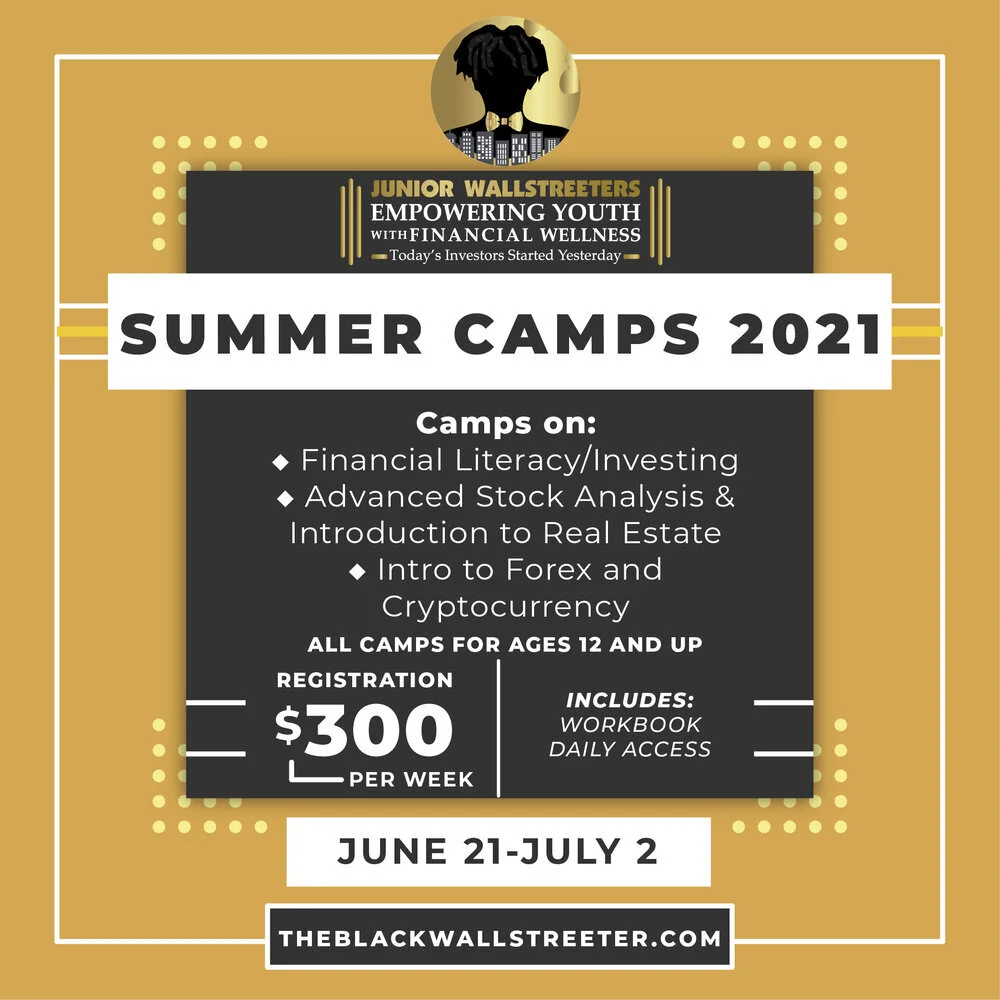Last week, in response Junior Wallstreeters’ ad for our next event, Lucus Miley sent me a text stating, “Nigger Wallstreet.” See Below. While attending college, I was called a Black Radical and Black Militant by white and Black students for protesting the university’s investment in Apartheid South Africa. Although that was 35 years ago, I am not totally surprised by the response. With that being said, we will continue to pursue our mission, which is decreasing the wealth gap even more vigorously.
Read MoreIt feels like your parents were just cooing over you yesterday and poof, you are now a pre-teen and young adult! Your needs and wants are evolving and you’re spending much more than expected.
Read MoreFinancial literacy is the possession of a set of skills and knowledge that allows individuals to make informed and effective decisions with the financial resources available to them. Having a clear understanding of basic financial concepts empowers people to better navigate financial systems more effectively. In other words, people with the appropriate financial education make better financial decisions and manage their money better that those without such education.
Read MoreThe world is constantly changing and will leave people behind. That is why it is important that disadvantaged youth are prepared with the necessary life skills so that they are competitive and are able to excel in a complex society. According to the Organization for Economic Cooperation and Development (OECD), young people will
encounter more financial risks and will be challenged with more sophisticated financial products than previous generations. This increased sophistication requires a need to understand personal finances, investment services, and the financial market at an even younger age.
Yes, lucky indeed. But what about families in different or more complex situations? How would they deal with the sudden or unexpected death of a loved one who is a significant financial provider to the household? The easy and almost textbook-like answer is “life insurance”.
Read MoreAre you an investor, trader or speculator?
So, the first question I will typically ask a client is whether they are an investor, trader or speculator.
Note – Before I dive into this, please be aware that I am “going light” on this topic. I am not going to get into Top-Down Analysis, Bottom-Up Analysis, Charting, or hard core fundamental analysis (e.g., Discounted Cash Flow Analysis), etc. At least not yet. So bear with me as I break it down for common folks without MBAs in Finance (smile).
Read MoreIn Africa, most of the investment clubs were started with an aim of helping members of the investment group as well as the community. They establish the club through the creation of rotating funds among the members. For instance, after the money is collected from individuals, the money is then lent out to a section of the members to help them in solving financial matters affecting them.
Read MoreOne of the options on the rise to enter the stock market is to set up an investment club. These clubs are made up of amateur investors who want to operate on the stock market with small capital. Retirees, students, university students or housewives have made their first steps in the stock market resorting to this option. Clubs are more interesting at times like the current one, where uncertainty and stock market instability predominate.
Relative poverty and limited political influence of the African American Community is closely associated with its limited possession of wealth, i.e. of business and financial assets as well as human capital. The African American middle-class is barely more likely to buy financial instruments like stocks as compared to the working-class white ethnics determined to upgrade their social status.









